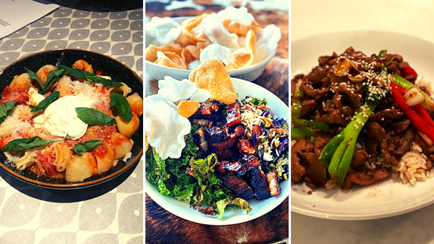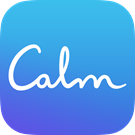
This week is Mental Health Awareness Week 2020, and the theme is kindness. During these unprecedented times, it's more important than ever to be kind to yourself, and others. To help us do this, and to continue to look after our mental health, we spoke with Rullion's People Director, Kim Strachan, as she takes us through her top tips for maintaining a healthy and balanced mental and emotional wellbeing.
1. Routine is everything
Routine is important to help us adapt to the current situation and manage our anxieties. We don't need to create a new routine, but simply varying your old routine can help bring balance to your mental wellbeing. If you're on furlough and no longer working, or if your role has changed and you now work from home, still make sure to get up at the same time you usually do. Spend your old commuting time doing a workout, or reading a magazine, and getting ready for the day ahead.
In addition, try and create a clear distinction between work and non-work. Some small things you can do to achieve this are to tidy your work items away every evening and be strict about not checking your emails late into the night. Make time for you, your family and the things you enjoy doing to help your mental and emotional wellbeing thrive.
2. We are what we eat
We know that eating good food helps us maintain a healthy weight, but it also really benefits our mental health. Keeping your diet diverse whilst also avoiding fatty or greasy foods will help you look after your mental health. To keep things interesting, why not try setting yourself different challenges, or trying out new recipes. Initiatives such as meat-free Monday are a great way to save money, reduce your risk of heart disease and save the planet.
At Rullion, we've set up a Lockdown Food Group where colleagues share ideas and recipes of meals they've created during the lockdown. It's a great way to get new ideas and maintain morale across the Group!

3. Know your red flags
Red flags are signs or emotions you may feel when you are stressed or experiencing anxiety. These could be mental red flags, thoughts such as 'why can't I do this?', or emotional feelings of sadness or worry. It might also be physical. It's not uncommon for our bodies to feel tension around our shoulders, or to experience problems with our stomachs when we're stressed or anxious. Headaches are also common. Noticing and recognising our red flags are important to understanding our mental and emotional wellbeing. Once you've recognised them, name them, and then use techniques to manage them, such as meditation or breathing techniques.
4. Manage uncertainty by being in the present
Keep focused on the day, and be in the present, to help stop the worry about things outside of our control. Using apps such as Headspace and Calm are really useful tools to practice mindfulness. One top tip is to sit outside and notice what you can see and hear around you. Practicing activities such as this will help you feel calmer and happier.


5. #bekind
Always remember to be kind to both yourself and others. We're facing uncertainty like never before, but it's important to remember we are all in this together. Random acts of kindness are not only the opportunity for you to make someone's day, but you also receive an emotional boost in the process. Giving someone a shout-out, recognising them for the work they're doing or for going out of their way to help you are excellent ways to give back to someone, as well as feel good yourself.
At Rullion, we've introduced a new reward and recognition scheme called the Rullion Star Initiative. Each week, our colleagues are encouraged to nominate someone who has gone above and beyond, whether that's at home, or in work. All our colleagues are then encouraged to nominate their favourite entry and vote for the winner. Rullion then makes a donation of £100 to NHS Charities Together in the winner’s name.
If you want any further help or advice, check out these resources below. You can also follow us on Instagram where we share tips, advice, good news stories and support on a regular basis.
Websites
- https://www.nhs.uk/oneyou/every-mind-matters/coronavirus-covid-19-staying-at-home-tips/
- https://www.llttf.com/corona/
- https://www.nhs.uk/oneyou/every-mind-matters/
- https://www.who.int/docs/default-source/coronaviruse/mental-health-considerations.pdf?sfvrsn=6d3578af_8
Apps
You might also want to try using an app to access some helpful resources for managing your emotional wellbeing. The list of apps out there is endless, but some especially useful ones are:
- Calm – includes guided meditations, sleep stories, breathing programs and relaxing music.
- Happify – includes engaging games, activity suggestions, gratitude prompts to overcome negative thoughts.
- Headspace – teaches the skills of mindfulness and meditation.
- Mind Shift – specifically for teens and young adults with anxiety.
- Self Help for Anxiety Management – includes 25 different self-help techniques.
- Smiling Mind – includes daily meditation and mindfulness exercises.
Emergency mental health contacts
If you're especially worried about your mental health and feel that you need to speak to somebody out of hours, the following can be contacted:
Breathing Space – Telephone: 0800 83 85 87 (Monday-Thursday 6pm to 2am, Friday 6pm-Monday 6am) – https://breathingspace.scot/
The Samaritans – Telephone: 116 123 (Available 24 hours, 7 days a week) – https://www.samaritans.org/?nation=scotland
If you feel that urgent help is required, please phone NHS 24 on 111.
